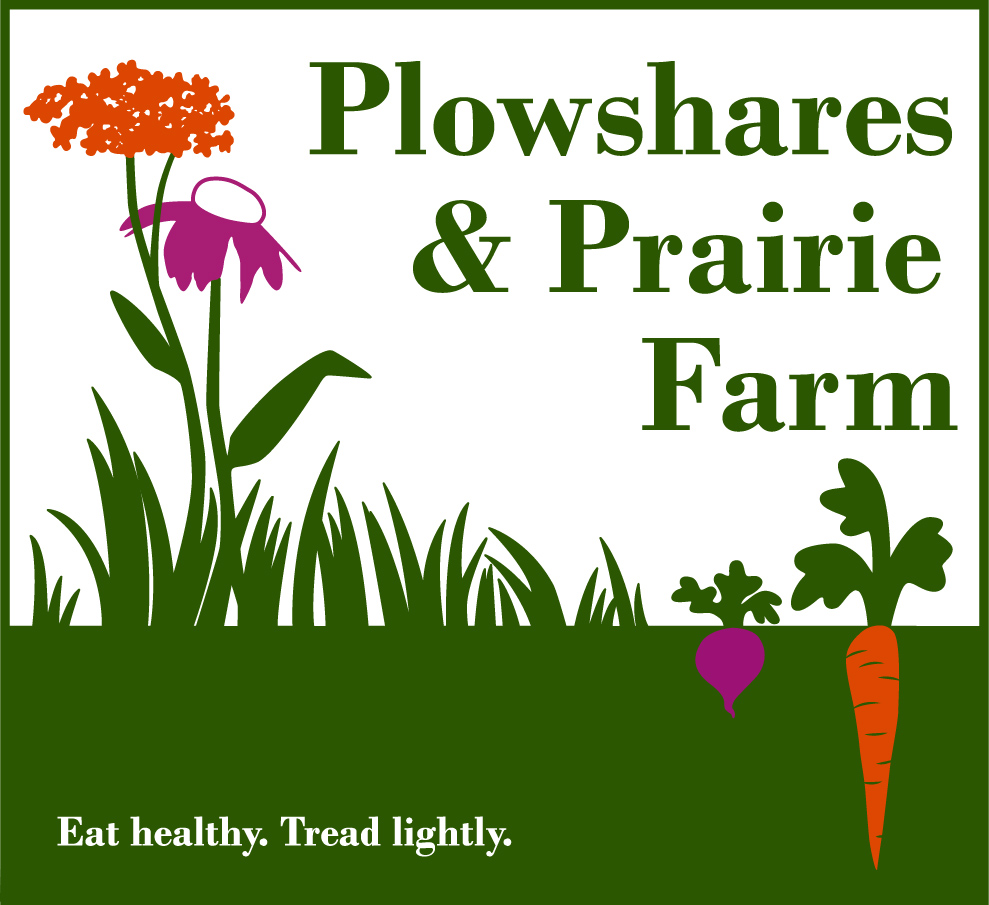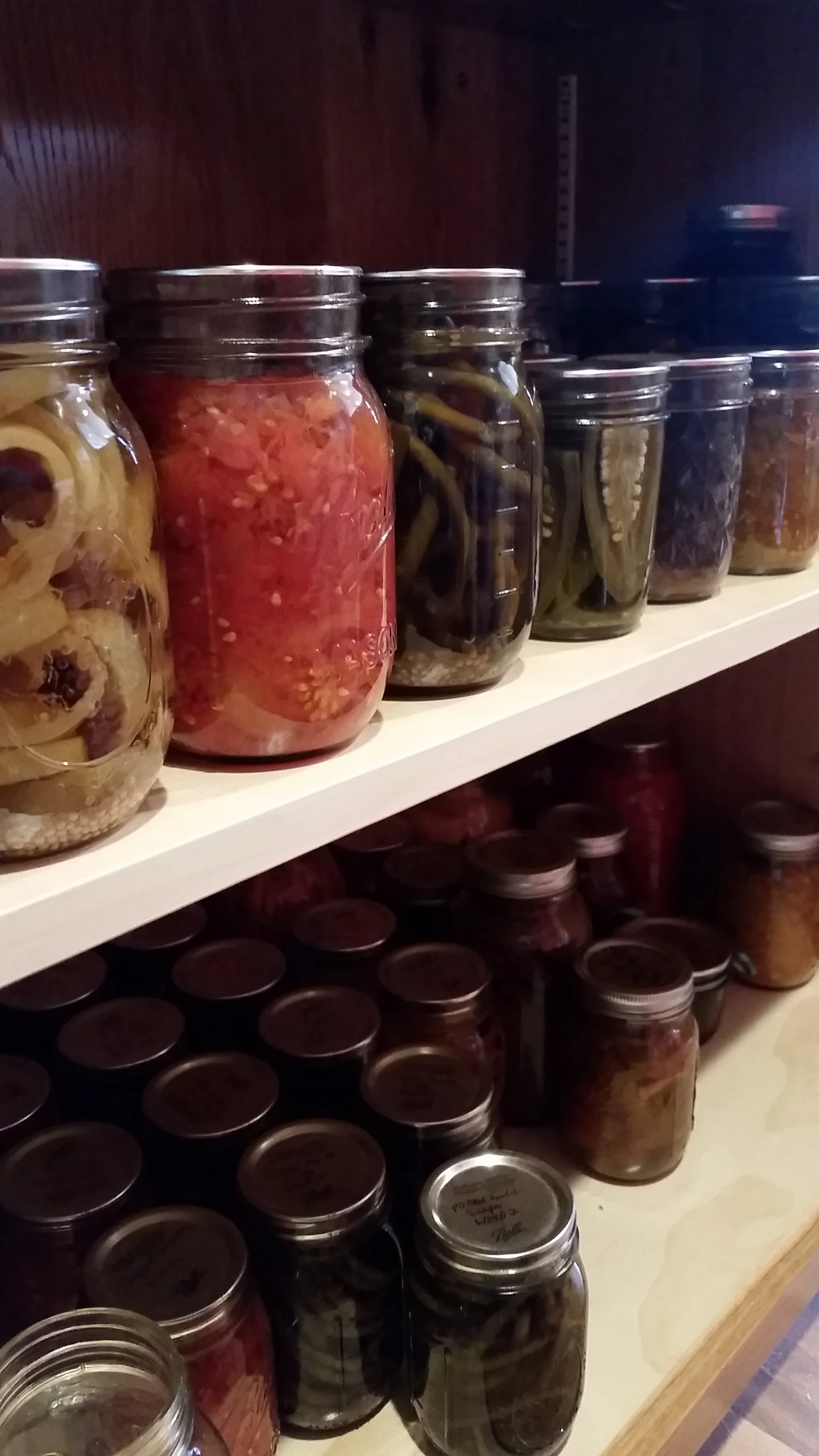Everyday is Earth Day on Plowshares & Prairie Farm
The name of our farm, Plowshares & Prairie, reflects our commitment to pairing sustainable food production with strong land stewardship. Caring for this beautiful Driftless land, our environment, and our community is embedded in everything we do on our farm.
Sunset on the farm
Like all CSAs endorsed by the FairShare CSA Coalition, our fruits and veggies are certified organic. We also manage our fields using many techniques like crop rotation, cover cropping, and mulching to build up and maintain the healthy soils that lead to healthy plants and a cleaner environment while protecting our water.
While we grow produce for our CSA on just 2 acres, we take a holistic approach to caring for our 75-acre property that is a patchwork of produce fields, prairie, oak savanna, wetland, pond, stream, and woods. Much of this land is enrolled in conservation programs. We work hard to restore the land by planting native species and doing controlled burns and extensive brush removal to manage invasive species. We devote particular attention to a unique prairie remnant on our property that has never been plowed and contains an exceptionally diverse community of native plants, including some rare species.
Chelsea conducting a controlled burn
The mulch and cover crops mentioned previously, as well as grass waterways around our fields, help reduce erosion and prevent runoff. When we provide nutrients to our fruits and veggies, we want them to stay in our fields and not pollute our stream, so when and how we put them on and how we manage our soil are all focused on minimizing nutrient loss as well as maximizing plant health. Our wetland helps filter any runoff that does occur from our fields before the water flows into the stream on our farm, and it also helps absorb water during floods.
Looking back at the field and barn from the prairie
Two years ago, we dug a pond at the edge of our wetland. We’re happy to see both local and migrating waterfowl discovering this inviting new habitat this spring. We enjoy the wildlife that the farm supports – from the spotted fawns to the coyotes that help keep rodents and rabbits at bay. Each spring, we take the time on a few evenings to enjoy the sky dance performed by our wood cocks (see the chapter by the same name in Aldo Leopold’s A Sand County Almanac for an excellent description).
The scrape (pond) next to the wetland
We also constantly look for opportunities to support pollinators. We received a grant to plant a pollinator plot near one of our produce fields, and our prairies provide food and habitat for native pollinators throughout the season. We also host three bee hives near our main produce field. It’s a win-win: the bees pollinate our crops and in exchange we enjoy their delicious honey, which looks and tastes different as bees feed on different flowers throughout the season.
Prairie flowers like these shooting stars attract native pollinators
Our environmental stewardship efforts extend beyond the way we manage our land. In 2014, we installed a 24-panel, 6 kW solar photovoltaic system on our barn as part of a group buy orchestrated by FairShare. Just as our produce sources its energy from the sun, we are pleased to do the same for a large portion of the electricity that we use in the barn and in our home. We have also upgraded our home lighting and appliances to be more efficient, insulated our farm house, and heat and cool the house with a geothermal system that we installed last year.
Our 6 kW solar system on the barn roof
And like many farmers, we cure, can, freeze, and dry enough produce to sustain our veggie and berry eating through the winter. We minimize our meat consumption, but Scott’s fall hunting generally allows us to put away some venison for the winter, and we also enjoy the eggs from our flock of laying hens. Generally speaking, we take Michael Pollan’s advice to heart: “Eat food. Not too much. Mostly Plants.”
Enjoying the summer’s bounty all year long
We both have backgrounds in science and environmental policy, and in addition to running our farm, we work part-time at environmental nonprofits. Chelsea’s work focuses on energy and climate change, exploring local solutions across Wisconsin for reversing global warming. Scott’s focus is on protecting Wisconsin’s water resources, working with fellow farmers and state and local governments to examine policies and practices that address our water pollution problems. We enjoy working towards these longer-term solutions as well as the more immediate and tangible reward that comes from caring for our farm and sharing healthy food with our community. Not just on Earth Day, but every day, we try to do what we can to make a positive impact on our environment, and to take care of this beautiful place for future generations.
A version of this post first appeared on the FairShare CSA Coalition website in April 2018.







